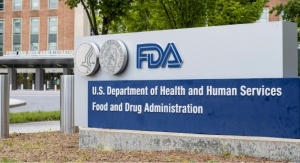03.10.15
Striking a balance between regulation and consumer access to dietary supplements is key to consumers worldwide getting the benefits that safe, quality dietary supplements can contribute to overall health and wellness, according to a new article published in the European Journal of Nutrition. The journal article reported from the Council for Responsible Nutrition-International’s (CRN-I) 2014 annual international scientific symposium, and is co-authored by nine of the conference’s speakers.
According to corresponding author Jim Griffiths, PhD, vice president, scientific and international affairs, CRN-I, “Over-regulation and/or inappropriate application of current regulations can increase the price of dietary supplements and nutritional products and in turn diminish their use, depriving individuals and societies of their health benefits. CRN-I’s 2014 symposium explored how to ensure that dietary supplements are safe and meet the quality standards that both consumers and regulators expect, while maintaining an open marketplace.”
The report, “A quality dietary supplement: before you start and after it’s marketed—a conference report,” summarized presentations and outcomes from the CRN-I 2014 symposium held in Brisbane, Australia, last October. It discussed U.S. good manufacturing practices (GMPs) and clarified the terms “verification” and “validation” and the roles these procedures play in different approaches to risk analysis. The report noted the importance of ensuring supplier compliance with GMPs and product stability and shelf life through audits and adequate regulations. The report also addressed post-market surveillance, including analysis of adverse event reports. The report emphasized the need for the dietary supplement industry to work collaboratively with national and regional regulators to prevent adulterated goods from entering the supply chain.
In addition to Dr. Griffiths, the co-authors of the article are Mark A. LeDoux, Natural Alternatives International, Inc.; Kristy R. Appelhans, ND, Herbalife International of America, Inc.; Lesley A. Braun, PhD, Blackmores Institute; Darren Dziedziczak, Blackmores, Ltd.; Sam Jennings, Berry Ottaway and Associates, Ltd.; Laura Liu, PhD, NSF-International; Henry Osiecki, Bioconcepts; and Edward Wyszumiala, GMP Auditing Partners. This is the fifth publication of CRN-I conference proceedings, with previous conference reports published in Regulatory Toxicology and Pharmacology, and for the last three years, in the European Journal of Nutrition. Abstracts of the published proceedings are available on the CRN-I website in 10 languages.
CRN-I will hold its 2015 symposium on Nov. 20 in Kronberg, Germany, the Friday before the Codex Nutrition Committee meeting also being held in Germany. CRN-I will announce further details about the 2015 symposium soon and registration will be available through CRN-I’s website.
According to corresponding author Jim Griffiths, PhD, vice president, scientific and international affairs, CRN-I, “Over-regulation and/or inappropriate application of current regulations can increase the price of dietary supplements and nutritional products and in turn diminish their use, depriving individuals and societies of their health benefits. CRN-I’s 2014 symposium explored how to ensure that dietary supplements are safe and meet the quality standards that both consumers and regulators expect, while maintaining an open marketplace.”
The report, “A quality dietary supplement: before you start and after it’s marketed—a conference report,” summarized presentations and outcomes from the CRN-I 2014 symposium held in Brisbane, Australia, last October. It discussed U.S. good manufacturing practices (GMPs) and clarified the terms “verification” and “validation” and the roles these procedures play in different approaches to risk analysis. The report noted the importance of ensuring supplier compliance with GMPs and product stability and shelf life through audits and adequate regulations. The report also addressed post-market surveillance, including analysis of adverse event reports. The report emphasized the need for the dietary supplement industry to work collaboratively with national and regional regulators to prevent adulterated goods from entering the supply chain.
In addition to Dr. Griffiths, the co-authors of the article are Mark A. LeDoux, Natural Alternatives International, Inc.; Kristy R. Appelhans, ND, Herbalife International of America, Inc.; Lesley A. Braun, PhD, Blackmores Institute; Darren Dziedziczak, Blackmores, Ltd.; Sam Jennings, Berry Ottaway and Associates, Ltd.; Laura Liu, PhD, NSF-International; Henry Osiecki, Bioconcepts; and Edward Wyszumiala, GMP Auditing Partners. This is the fifth publication of CRN-I conference proceedings, with previous conference reports published in Regulatory Toxicology and Pharmacology, and for the last three years, in the European Journal of Nutrition. Abstracts of the published proceedings are available on the CRN-I website in 10 languages.
CRN-I will hold its 2015 symposium on Nov. 20 in Kronberg, Germany, the Friday before the Codex Nutrition Committee meeting also being held in Germany. CRN-I will announce further details about the 2015 symposium soon and registration will be available through CRN-I’s website.



























